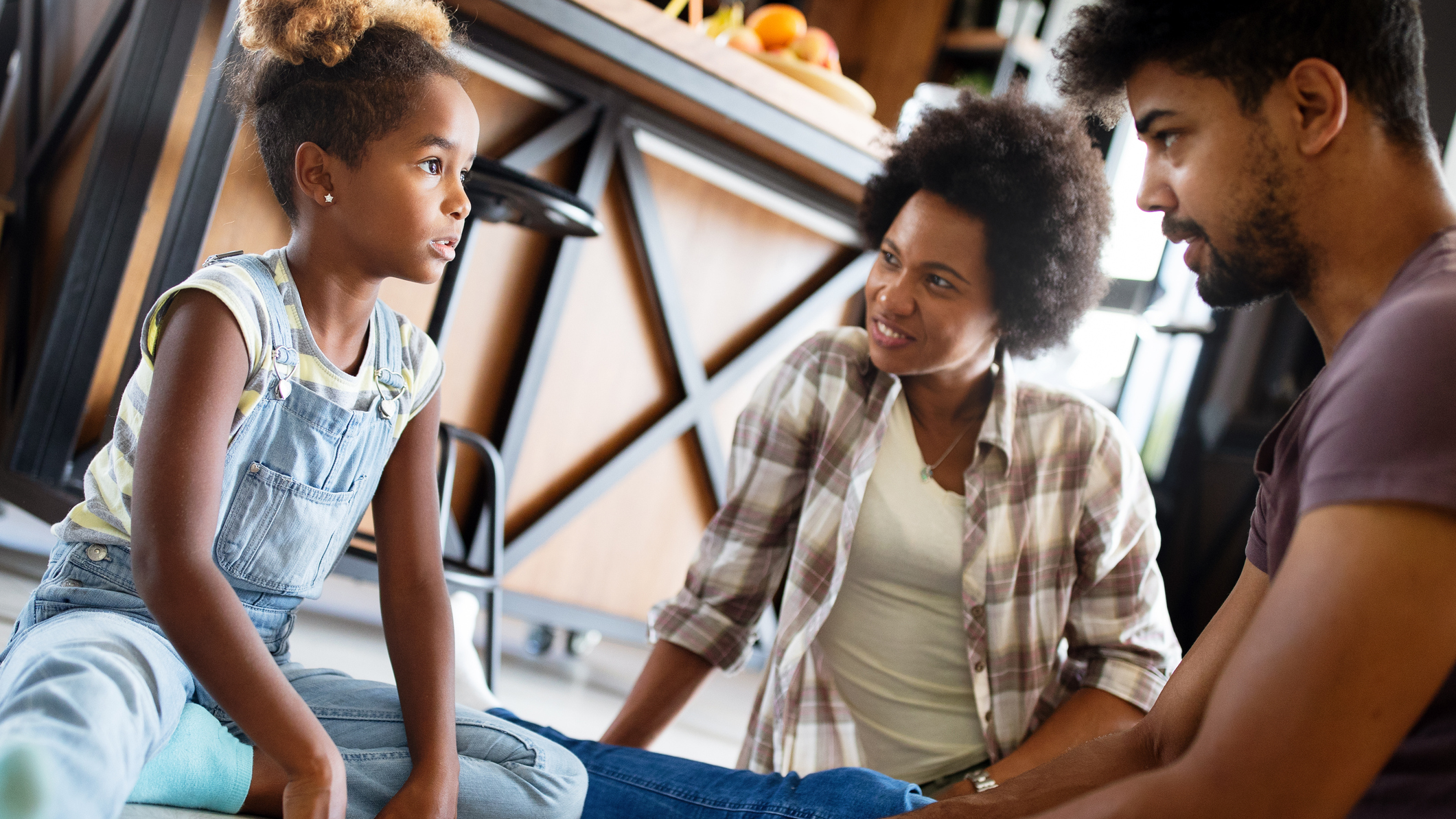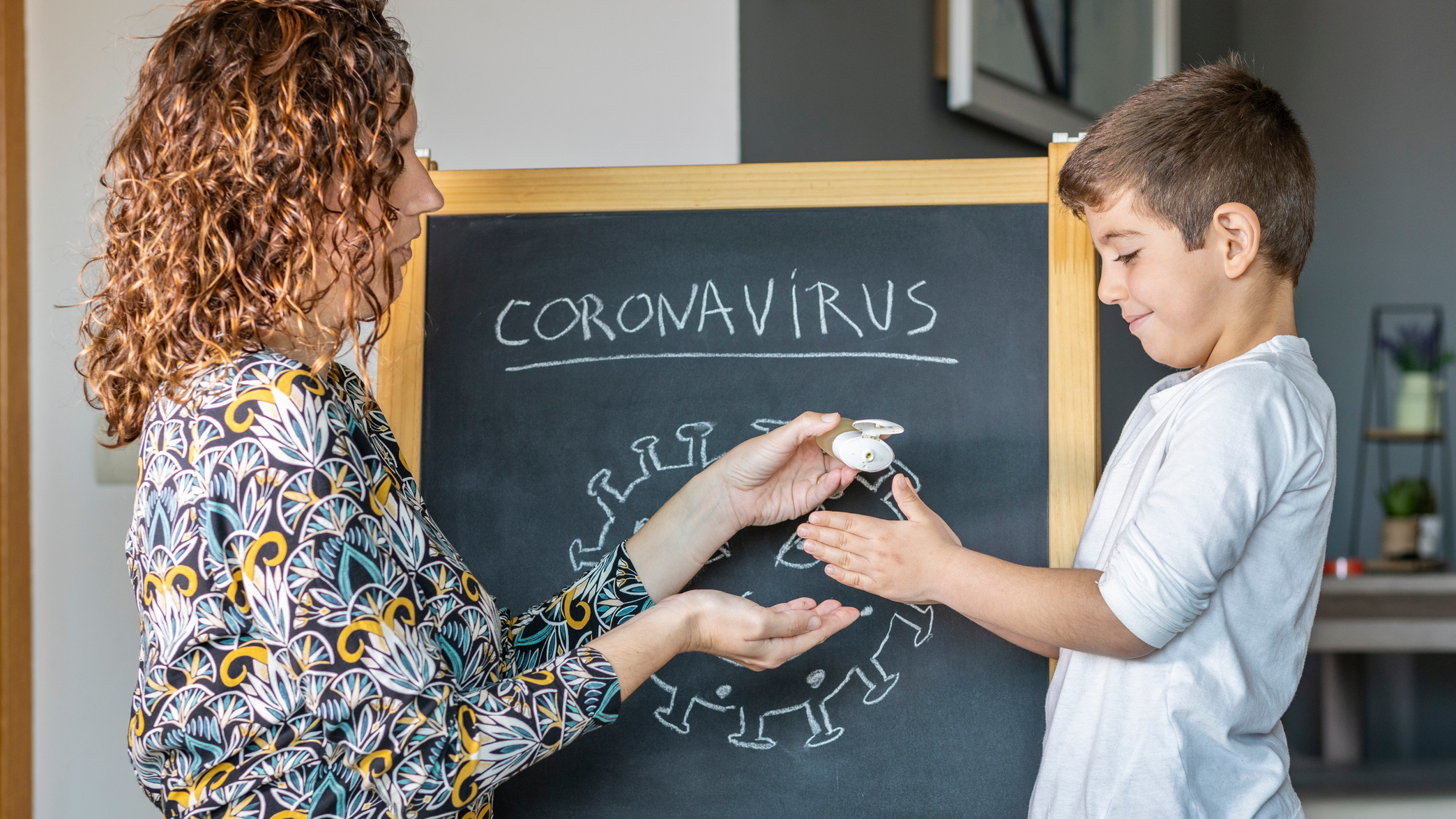Mental health: 8 expert tips for talking to children about Covid-19
Covid-19 has done harm to a lot of children's mental health – here's how to talk them about it

Mental health is important for everyone, including children, and friendships are a big part of this. Half of parents with children between 4-12 think the coronavirus pandemic has affected their youngers’ friendships. This is echoed by the kids themselves, with six in 10 saying the thing they miss most about lockdown is their friends.
The poll of 1,000 parents and 500 children aged 6-10 found 38 per cent of kids even miss going to school, while four in 10 mums and dads believe their kids have experienced a heightened sense of anxiety since the outbreak. A third have seen a lack of energy and enthusiasm, with one in five admitting their young ones are no longer sleeping well.
Perhaps most worryingly, a quarter of adults said they would be unable to identify if their child was struggling with mental health. The research was commissioned by Tangle Teezer, which is working with child psychologist Dr Sam Wass, on a campaign to help parents get their children to open up during haircare time.
- It's Christmas! These are the 50 best fitness gifts
- Best cross training shoes: The best trainers for CrossFit, HIIT and more
Dr Wass, from the award-winning UK Channel 4 TV series The Secret Life of 4 and 5 Year Olds, said: “The last few months have been a massively stressful time for everyone.
"But for children, who tend to live much more ‘in the moment’, and who often understand little about why these new rules are being imposed, it has been a particularly tough few months.
“Children are always better at understanding how another child feels, as their perspective on life is more similar. But many children aren’t getting as much access as normal to their friends at the moment, which makes things even harder.
“It’s natural that we as parents want to support our children through this difficult period. But getting them to open up can be hard. We have to play so many different roles as parents and it’s very easy to get stuck in one role - which can make it hard to shift gear into situations where we just want to provide emotional support.”
Get the Fit&Well Newsletter
Start your week with achievable workout ideas, health tips and wellbeing advice in your inbox.

The prospect of family or friends succumbing to the virus was the biggest worry for children, aged between six and 10, this year (46 per cent), followed by grandparents being lonely (31 per cent). An overwhelming 71 per cent of children said their parents or guardians had talked to them about coronavirus as much as they would have liked.
Another 73 per cent felt they themselves had talked about general things as much as they would have liked, but there was a markedly different response from parents on the same issue.
Almost half (45 per cent) of the parents surveyed said that they generally found it easier to give their child access to technology instead of talking to them at the end of a school day, and only 23 per cent of respondents said they felt they talked to their child “more than average”.
Dr Wass has provided the following top tips for ‘detangling the day’ with children.
- Sit side by side: Taking face-to-face isn't necessarily the best approach. According to Dr Wass, the most relaxed conversations happen when both parties are facing forwards.
- Make contact: Physical touch will help children relax. Try soothing their head, a particularly trusting form of touch.
- Make it special: encouraging a child to open up to you is about making them feel in control, so make it feel like treat time.
- Find a way in: If you’ve a particular question you want to ask or topic you want to address, don't dive straight into that - instead, open the conversation with one of their favourite topics.
- Choose your words carefully: Avoid closed questions (those with a yes/no answer), and instead use open-ended questions that begin with how, what, where, when and how.
- Summarise and reflect: A good tactic is to summarise what they’ve said to show you're listening and check understanding.
- Listen and don't try to fix: It can be tempting to tell those we're listening to what they should or shouldn’t be feeling, or try to fix their problems - especially with children. Resist this temptation - don’t deny their feelings, and don’t try to ‘fix’ things.
- Be vulnerable: When it comes to our children, we’re used to being the strong ones – but it can help to say that you're struggling or having a difficult time too.
Jacqui Ripley, director of brand communications at Tangle Teezer, suggests that a good time to speak to your children is whilst doing day-to-day tasks such as brushing their hair.
She said: “Children are having to worry about a lot of grown-up things at the moment and conversation always helps.
"We wanted to carve out a time in the day dedicated to children taking the floor and voicing their concerns, and what better time than having your hair brushed?"
Liked this?
Launched in 2020, Fit&Well.com is all about helping you meet your health and fitness goals in ways that are fun and achievable. With news and features on fitness, weight loss, running, nutrition, yoga, wellness and more, we're committed to helping you wherever you are on your fitness journey. We break down the best fitness tech, with reviews, buying guides and the latest deals on fitness and wellness kit, from dumbbells to diffusers.
We cater for all difficulty levels here. It doesn't matter if you're a beginner in the world of fitness or you're gearing up for your tenth marathon: we're all moving towards the same goal – creating a healthier, happier you. From guides on getting started doing walks around the block, to creating the perfect work-from-home space, to eating to fuel your first triathlon. It's all here.
-
 I do these two things every day to stay fit and healthy, says the newest star trainer on Chris Hemsworth's fitness app
I do these two things every day to stay fit and healthy, says the newest star trainer on Chris Hemsworth's fitness appHere's how Centr's Korey Rowe trains for longevity
By Sam Rider Published
-
 I thought sports weren't for me, until I realised they're a game-changer for ticking off cardio
I thought sports weren't for me, until I realised they're a game-changer for ticking off cardioI swapped HIIT and running for tennis—and I've never felt better
By Alice Porter Published
